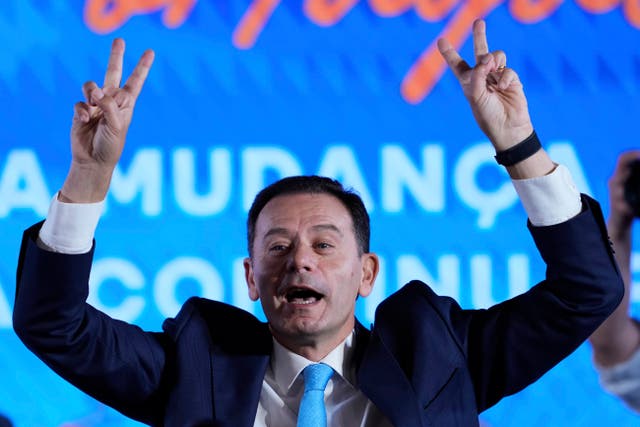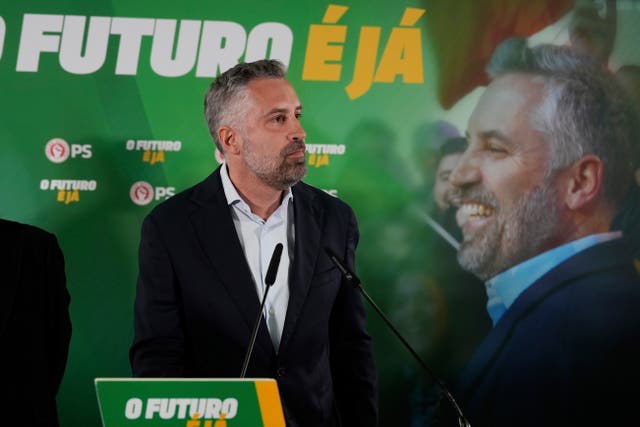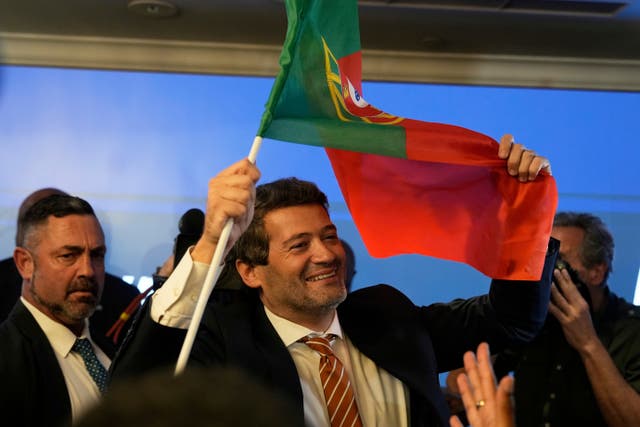Portuguese election brings another minority government amid far-right rise
Chega (Portuguese for ‘enough’) won 58 seats in Portugal’s third election in three years.

Portugal’s President will convene the country’s political parties for consultations on Monday, after a general election delivered another minority government as well as an unprecedented showing by populist party Chega (Enough) that added momentum to Europe’s shift to the far-right.
The centre-right Democratic Alliance, led by the Social Democratic Party, captured 89 seats in the 230-seat National Assembly to win Sunday’s ballot.
The outcome leaves it without a parliamentary majority, however, and vulnerable to opposition parties that ousted it two months ago in a confidence vote after less than a year in power.
Portugal’s third general election in three years provided little hope for ending the worst spell of political instability for decades in the European Union country of 10.6 million people.

“The Portuguese don’t want any more early elections,” Luis Montenegro, the Democratic Alliance leader and incoming prime minister, said in an appeal for opposition parties to let him serve a full four-year term.
“We all have to be able to speak to each other and put the national interest first,” he added.
Portuguese President Marcelo Rebelo de Sousa, who has no executive power, is due to consult with the parties before inviting the election winner to form a government.
Chega’s result shook up the traditional balance of power in a trend already witnessed elsewhere in Europe with parties such as France’s National Rally, the Brothers of Italy, and Alternative for Germany, which are now in the political mainstream.
Leader Andre Ventura has appeared at events with the leaders of those parties in recent years.
For the past 50 years, the Social Democrats and the centre-left Socialist Party have alternated in power in Portugal.

Chega collected the same number of seats as the Socialists – 58 – and could yet claim second place when four remaining seats decided by voters abroad are attributed in coming days.
“The two-party system is over,” Mr Ventura, a lawyer and former soccer pundit, said.
Chega competed in its first election just six years ago, when it won one seat, and has fed off disaffection over the more moderate traditional parties.
Campaigning under the slogan “Save Portugal”, it describes itself as a nationalist party and has focused on curbing immigration and cracking down on corruption.
The Socialists, meanwhile, are without a leader after Pedro Nuno Santos said he was standing down after the party’s worst result since 1987.
The Democratic Alliance, which also includes the smaller Popular Party, lost a confidence vote in parliament in March as opposition legislators teamed up against it. That triggered an early election, which had been due in 2028.

The confidence vote was sparked by a political storm around potential conflicts of interest in the business dealings of Prime Minister Luís Montenegro’s family law firm. Mr Montenegro has denied any wrongdoing.
Corruption scandals have dogged Portuguese politics in recent years, helping fuel the rise of Chega.
But the party has recently fallen foul of its own legislators’ alleged wrongdoing. One is suspected of stealing suitcases from the Lisbon airport and selling the contents online, and another allegedly faked the signature of a dead woman. Both resigned.
Chega owes much of its success to its demands for a tighter immigration policy that have resonated with voters.
Portugal has witnessed a steep rise in immigration. In 2018, there were fewer than a half-million legal immigrants in the country, according to government statistics. By early this year, there were more than 1.5 million, many of them Brazilians and Asians working in tourism and farming.
Thousands more lack the proper documents to be in Portugal. The Democratic Alliance government announced two weeks before the election that it was expelling about 18,000 foreigners living in the country without authorisation.
Though such a step is routine, the timing drew accusations that it was trying to capture votes from Chega.
A housing crisis has also fired up debate. House prices and rents have been soaring for the past 10 years, due in part to an influx of white-collar foreigners who have driven up prices.
The problem is compounded by Portugal being one of Western Europe’s poorest countries.





